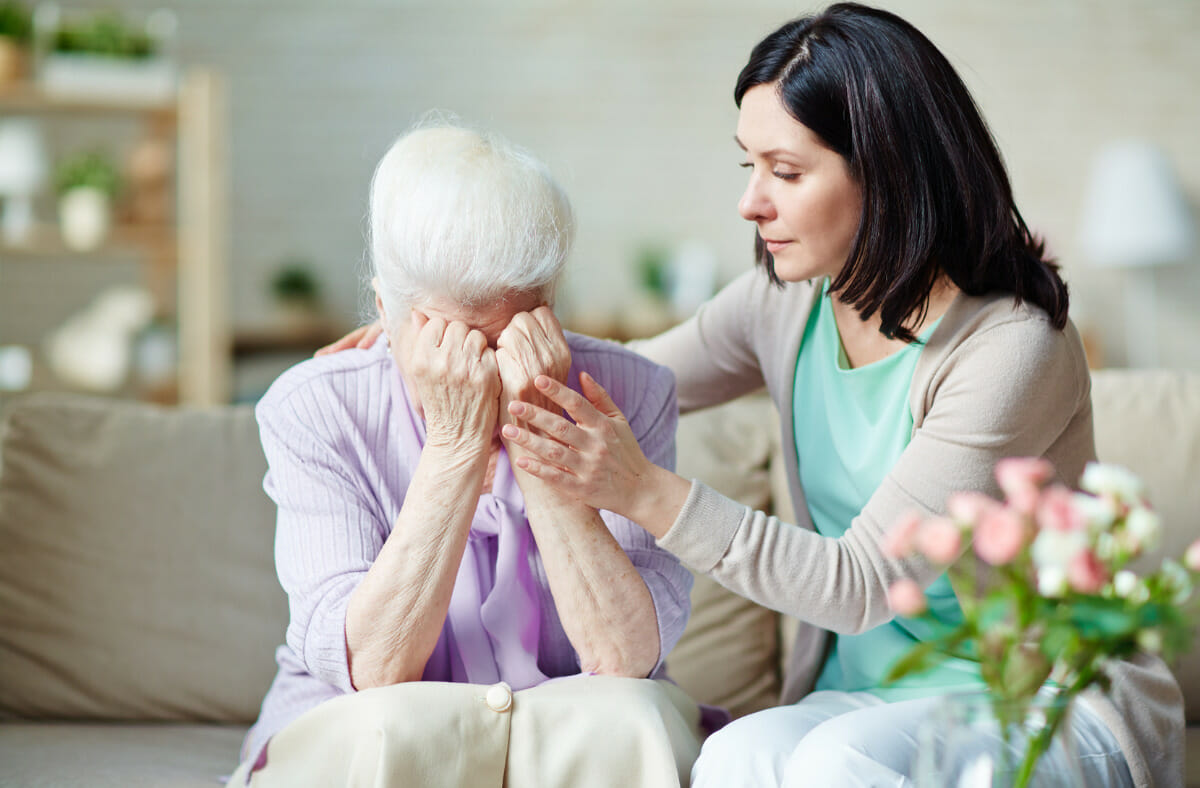Many seniors find themselves struggling to cope with grief and loss. We all experience losses throughout our lives, but it can be especially difficult as a senior citizen. Due to the natural process of aging, you may experience the loss of a friend, loved one, or even a spouse or partner. You may also experience feelings of grief due to health challenges or life changes. Some people grieve their youth, their jobs, or just the way their life used to be.
If you are struggling to cope with grief and loss, you are not alone. There are lots of resources out there to help you. Grief isn’t a pleasant feeling, but it can lead to important healing and growth. We hope this guide for seniors will help you learn how to cope with loss and grief.
Allow Grief
Allow yourself to grieve. Trying to shove down emotio//
ns never makes them go away. Grief demands to be heard, and if you try to silence it, you may find it returns in the form of depression, anger, or other mental health issues.
Some people describe grief as a series of waves. At first, the waves can be immense and all-consuming, and it can feel like you might drown in them. But with time, the waves become gentler and less frequent. Give yourself space and time to learn to ride the waves.
Talk it Out
While it’s normal to feel reluctant to talk about their thoughts and feelings, it can be incredibly helpful for grief. Talking about your loss can help you to process your emotions and feel supported. Talking to friends or family members can be helpful, but this can sometimes be difficult when dealing with complex emotions that come with loss. Therapists and therapist-lead support groups can be incredibly helpful as you navigate your grief.
Stay Healthy
Take care of yourself. Make sure you are eating regularly, getting enough sleep, and moving your body when you can. These things can help you to feel better both physically and emotionally. Grief can feel like a heavy weight that makes it difficult to do anything. Sometimes, you might feel like it is impossible to even get out of bed in the morning. While taking some time to rest can be helpful, at some point you will need to continue living your life. There is still hope and happiness out there!
Do Things You Enjoy
Grief can make it difficult to find joy in things, but don’t give up too easily. It’s important to find balance between feeling your grief, and drowning in it. Try to keep doing things you used to enjoy, or try new things you might like. This could include spending time with loved ones, pursuing hobbies, or getting involved in activities that you find meaningful. While it can be difficult at first, eventually you’ll notice light and color return to your life.
Remember, grief is a process. There is no right or wrong way to grieve, and there is no set timeline for healing. Be patient with yourself and allow yourself the time and space you need to heal.




